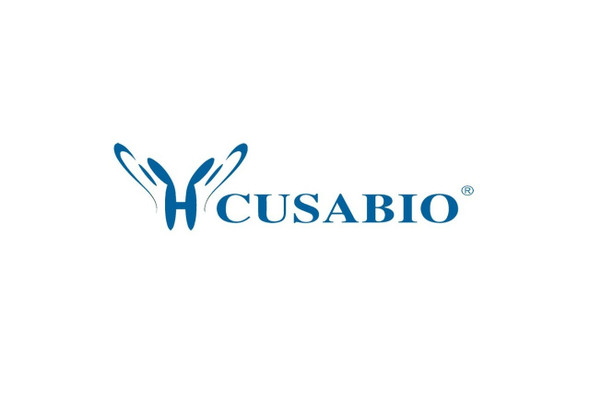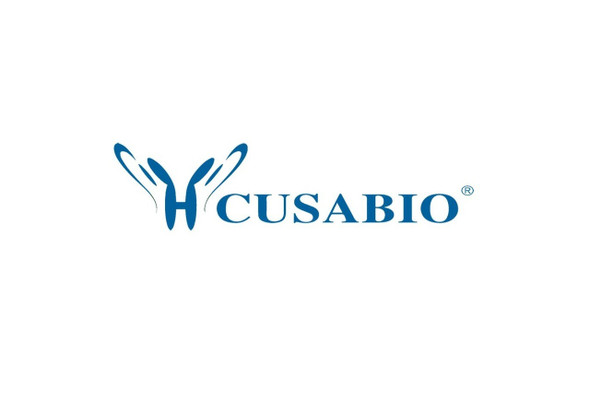Cusabio Mouse Recombinants
Recombinant Mouse Beclin-1 (Becn1) | CSB-EP002658MO
- SKU:
- CSB-EP002658MO
- Availability:
- 3 - 7 Working Days
Description
Recombinant Mouse Beclin-1 (Becn1) | CSB-EP002658MO | Cusabio
Alternative Name(s): Coiled-coil myosin-like BCL2-interacting protein
Gene Names: Becn1
Research Areas: Epigenetics and Nuclear Signaling
Organism: Mus musculus (Mouse)
AA Sequence: MEGSKASSSTMQVSFVCQRCSQPLKLDTSFKILDRVTIQELTAPLLTTAQAKPGETQEEEANSGEEPFIETRQDGVSRRFIPPARMMSTESANSFTLIGEASDGGTMENLSRRLKVTGDLFDIMSGQTDVDHPLCEECTDTLLDQLDTQLNVTENECQNYKRCLEILEQMNEDDSEQLQRELKELALEEERLIQELEDVEKNRKVVAENLEKVQAEAERLDQEEAQYQREYSEFKRQQLELDDELKSVENQVRYAQIQLDKLKKTNVFNATFHIWHSGQFGTINNFRLGRLPSVPVEWNEINAAWGQTVLLLHALANKMGLKFQRYRLVPYGNHSYLESLTDKSKELPLYCSGGLRFFWDNKFDHAMVAFLDCVQQFKEEVEKGETRFCLPYRMDVEKGKIEDTGGSGGSYSIKTQFNSEEQWTKALKFMLTNLKWGLAWVSSQFYNK
Source: E.coli
Tag Info: N-terminal 6xHis-SUMO-tagged
Expression Region: 1-448aa
Sequence Info: Full Length
MW: 67.6 kDa
Purity: Greater than 90% as determined by SDS-PAGE.
Relevance: Plays a central role in autophagy (PubMed:10604474, PubMed:12372286, PubMed:19270693). Acts as core subunit of different PI3K complex forms that mediate formation of phosphatidylinositol 3-phosphate and are believed to play a role in multiple membrane trafficking pathways: PI3KC3-C1 is involved in initiation of autophagosomes and PI3KC3-C2 in maturation of autophagosomes and endocytosis (PubMed:19270693, PubMed:25275521). Involved in regulation of degradative endocytic trafficking and required for the abcission step in cytokinesis, probably in the context of PI3KC3-C2 (By similarity). Essential for the formation of PI3KC3-C2 but not PI3KC3-C1 PI3K complex forms (PubMed:25275521). Involved in endocytosis including endosome formation in neuronal cells (PubMed:25275521). May play a role in antiviral host defense (By similarity).
Reference: "Beclin 1 is required for neuron viability and regulates endosome pathways via the UVRAG-VPS34 complex."McKnight N.C., Zhong Y., Wold M.S., Gong S., Phillips G.R., Dou Z., Zhao Y., Heintz N., Zong W.X., Yue Z.PLoS Genet. 10:E1004626-E1004626(2014)
Storage: The shelf life is related to many factors, storage state, buffer ingredients, storage temperature and the stability of the protein itself. Generally, the shelf life of liquid form is 6 months at -20?/-80?. The shelf life of lyophilized form is 12 months at -20?/-80?.
Notes: Repeated freezing and thawing is not recommended. Store working aliquots at 4? for up to one week.
Function: Plays a central role in autophagy
Involvement in disease:
Subcellular Location: Cytoplasm, Golgi apparatus, trans-Golgi network membrane, Peripheral membrane protein, Endosome membrane, Peripheral membrane protein, Endoplasmic reticulum membrane, Peripheral membrane protein, Mitochondrion membrane, Peripheral membrane protein, Endosome, Cytoplasmic vesicle, autophagosome
Protein Families: Beclin family
Tissue Specificity:
Paythway:
Form: Liquid or Lyophilized powder
Buffer: If the delivery form is liquid, the default storage buffer is Tris/PBS-based buffer, 5%-50% glycerol. If the delivery form is lyophilized powder, the buffer before lyophilization is Tris/PBS-based buffer, 6% Trehalose, pH 8.0.
Reconstitution: We recommend that this vial be briefly centrifuged prior to opening to bring the contents to the bottom. Please reconstitute protein in deionized sterile water to a concentration of 0.1-1.0 mg/mL.We recommend to add 5-50% of glycerol (final concentration) and aliquot for long-term storage at -20?/-80?. Our default final concentration of glycerol is 50%. Customers could use it as reference.
Uniprot ID: O88597
HGNC Database Link: N/A
UniGene Database Link: UniGene
KEGG Database Link: KEGG
STRING Database Link: STRING
OMIM Database Link: N/A









